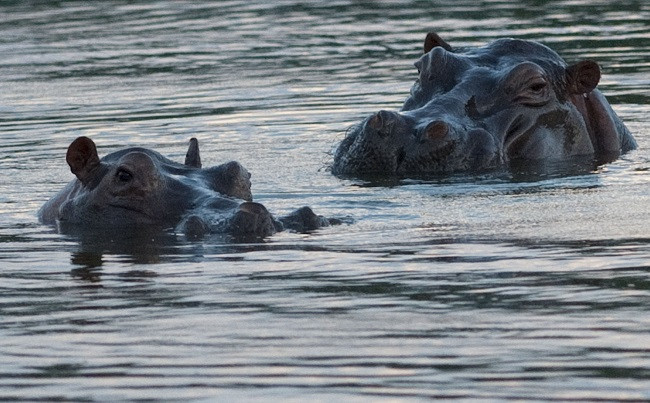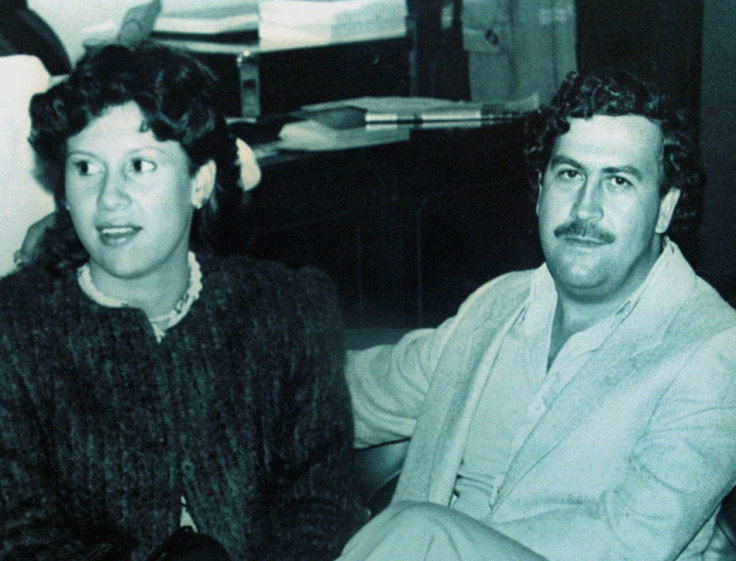Lost Hippos of Colombia's Cocaine Baron Pablo Escobar grow into Huge Herd

A growing herd of hippopotamuses once owned by the late Colombian drug lord Pablo Escobar is putting local populations at risk.
Escobar, known as one of the wealthiest criminals in history, smuggled elephants, giraffes and hippos into his lavish zoo that he built on his ranch in the Colombian capital, Hacienda Napoles, in the early 1980s.
But when he was arrested in 1991 his ranch was confiscated and all the animals were dispersed to other zoos around the country except for his hippos, the BBC World Service has learnt.

Now the local authorities say the three-tonne herbivores at the former park are becoming a growing concern as they have multiplied over the past two decades – with some being spotted as far as 250km up river and nobody knows how many there are in total.
Between 50 and 60 hippos are living in the park but 12 are known to have escaped but there may be many more.
"It's just like this crazy wildlife experiment that we're left with," said San Diego University ecologist Rebecca Lewison to the BBC World Service.
For Carlos Valderrama, whose job includes watching the hippos in Magdalena, says doing nothing is not an option.
"We have seen that hippos are very territorial and very aggressive. They are not a tame animal. The risk for local populations to just leave them to browse around will be huge."
The Colombian people are more vulnerable than Africans because they see hippos as cuddly, "floppy" animals.
One El Colombiano newspaper recently reported children in a school near Hacienda Napoles are sharing a pond with the animals and having direct contact with hippo calves at home.
"My father brought a little one home once," an unnamed girl told the paper. "I called him Luna (Moon) because he was very sweet – we fed him just milk."
Another child, a boy told the paper: "My father has captured three. It is nice because you have a little animal at home. We bottle-feed them because they only drink milk. They have a very slippery skin, you pour water and they produce a kind of slime, you touch them and it's like soap."
But adult hippos are dangerous and are responsible for more human deaths in Africa than any other animal.
David Echeverri from the local environmental authority believes the answer is to build a reserve with proper hippo-proof fences. But he says it would be a huge challege to round up the feral hippos of Antioquia and cost $500,000 (£290.000).
"It's not going to be accepted in general by environmentalists and biologists here, because Colombia doesn't have a lot of money," said Patricio von Hildebrand, a biologist working in the Amazon region.
"They don't think the money should be invested in maintaining a few hippos rather than conserving the original species in Colombia."
Hildebrand also suggested: "I think they should barbecue them and eat them."
This is what locals resorted to doing when they mistakenly electrocuted one of the Hacienda Napoles hippos. Apparently the animal tasted similar to pork.
But Valderrama advises against eating hippo meat in case it is infected with a transmittable disease - they are known to carry leptospirosis which causes meningitis.
"We do no want to choose the easy option and give the world this negative image, not with such a charismatic animal," Echeverri added.
"The country is changing the image it gives the world - we don't want to be in the headlines for such a story."
Experts from the World Wildlife Fund and the Disney Foundation, who visited Colombia in 2010, described the hippo situation as a "time bomb".
Escobar the cocaine trafficker is thought to be responsible for 4,000 deaths including the killing of 107 people on board Avianca Flight 203
© Copyright IBTimes 2025. All rights reserved.






















